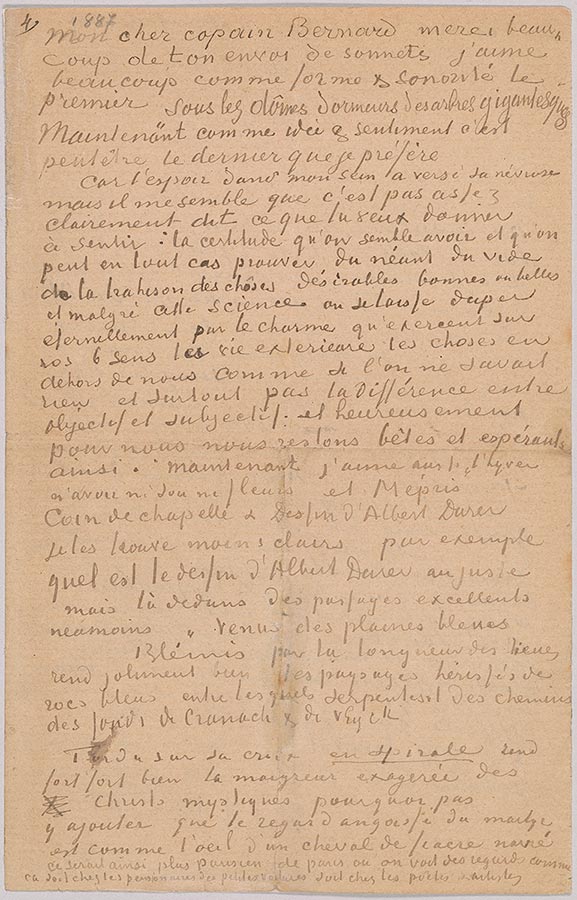
Vincent van Gogh, letter to Émile Bernard, Arles, 19 April 1888, Letter 4, page 1
Thaw Collection, given in honor of Charles E. Pierce, Jr., 2007
My dear old Bernard,
Many thanks for sending your sonnets. For form and sonority I very much like the first one,
"Under the sleeping canopies of the gigantic trees." Now for idea and sentiment it's perhaps the
last one that I prefer: "For hope has poured its nervousness into my breast," but it seems to me that
what you want to evoke isn't stated clearly enough: the certainty that we seem to have and which
anyway we can prove, of nothingness, of emptiness, of the treachery of desirable, good, or beautiful
things, and despite this knowledge we forever allow ourselves to be deceived by the spell that
external life, things outside ourselves, cast over our six senses, as though we knew nothing, and
especially not the difference between objective and subjective. And fortunately for us, in that way
we remain ignorant and hopeful. Now I also like "In winter, have neither a sou nor a flower," and
"Contempt." "Corner of a chapel" and "Drawing by Albrecht Dürer" I find less clear. For example,
precisely which drawing by Albrecht Dürer is it? But excellent passages in it nevertheless. "Having
come from the blue plains, Made pale by the long miles" is a jolly good rendering of the landscapes
bristling with blue rocks between which the roads wind in the backgrounds of Cranach and Van Eyck.
Twisted on his cross in a spiral is a very, very good rendering of the exaggerated thinness of the
mystical Christs; why not add to it that the anguished expression of the martyr is like the eye of
a brokenhearted cab horse? That way it would be more utterly Parisian, where you see looks like
that, either in the drivers of the little carriages or in poets and artists.
© 2007 Van Gogh Museum, Amsterdam
